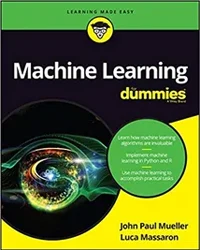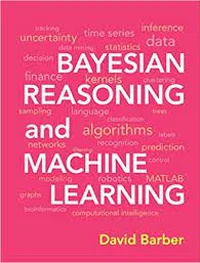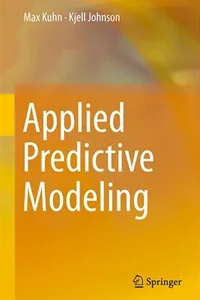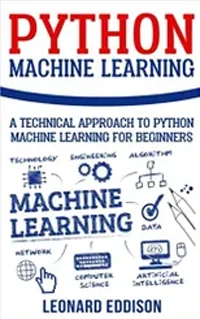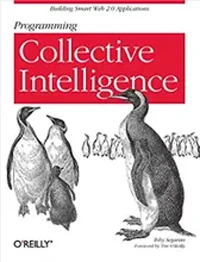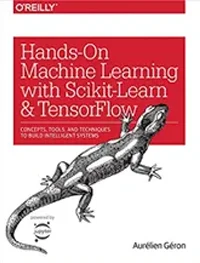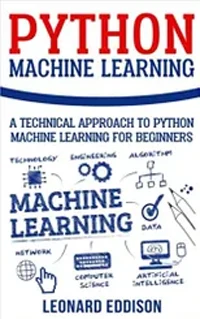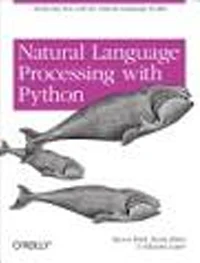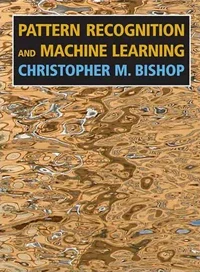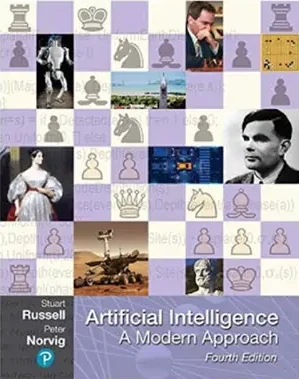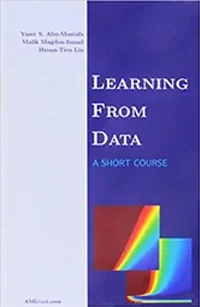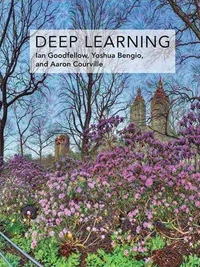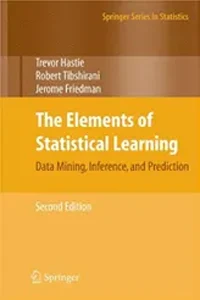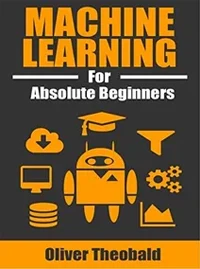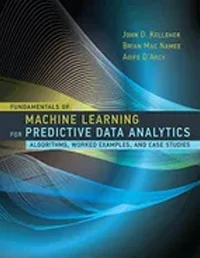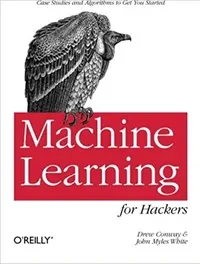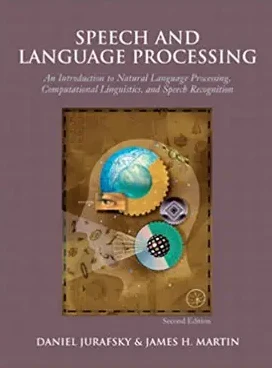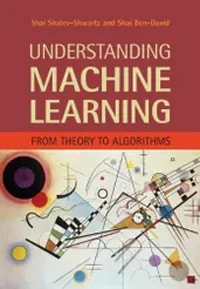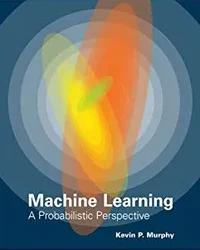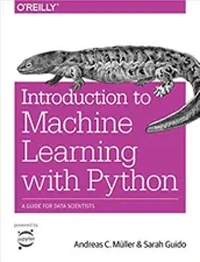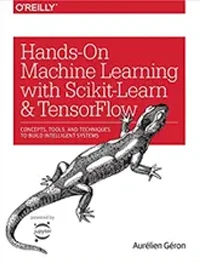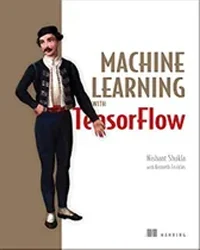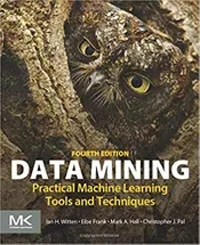Machine Learning Books
Machine learning is critical for businesses because it gives a picture of tendencies in consumer habits and company operating routines while also supporting the creation of new goods. It is now a fundamental element of the functioning of many top corporations, like Uber, Google, and Facebook. It has turned into a significant key tool for many businesses.
For beginners, machine learning might be a daunting subject. The phrase spans so many different areas, research topics, and commercial applications that it may be tough to know where to begin. To fight this, it’s generally a good notion to consult literature that will expose you to the fundamental concepts of your new subject of study.
We have selected the greatest field guides, icebreakers, and reference machine learning books that will fit both newbies and experts who are eager to increase their grasp of machine learning, whether you are a total rookie or a recognised genius in this area. Let’s see them:
Best Books to learn Machine Learning
1. The Hundred-Page Machine Learning Book by Andriy Burkov
This book is simple to understand. This apparently started as a LinkedIn contest and became one of the greatest crash-courses in machine learning. The Hundred-Page Machine Learning Book is widely regarded as being the most concise machine learning book. Burkov, for his part, does not cut any corners; the narrative is almost bursting with complicated theory paired with actual application.
For individuals who want to get their hands dirty, all of the relevant arithmetic calculations are neatly connected into the work as well. If you find yourself needing more after completing the book, you may discover longer editions of certain chapters free online.
Topics covered in it are:
- Anatomy of a learning algorithm
- Fundamental algorithms
- Neural networks and deep learning
- Other forms of learning
- Supervised learning and unsupervised learning
2. Machine Learning for Dummies by John Paul Mueller and Luca Massaron
This book shows how to educate computers to spot trends and analyse data using Python and R programming. The text also goes over how ml helps with email filtering, identity verification, digital advertising, and google searches, among other things.
Topics covered:-
- ML foundations
- Fundamental algorithms
- Basics of Python for ML
- Basics of R programming
- Supervised learning and unsupervised learning
3. Bayesian Reasoning and Machine Learning by David Barber
Bayesian Reasoning and Machine Learning is a must-have for anybody wanting to join the field of machine learning. The textbook is an excellent choice for software engineers who lack a foundation in calculus and linear algebra.
The book has a plethora of examples and activities. As a result, the book is also appropriate for students. The machine learning book offers extra internet tools as well as a full software suite for educators that contains demonstrations and teaching aids.
Topics covered
- Graphical models
- Naive Bayes algorithm
- Probabilistic reasoning
4. Applied Predictive Modeling by Max Kuhn and Kjell Johnson
Kuhn and Johnson’s textbook is an excellent pick for any learners or programmers interested in learning about predictive algorithms and the modeling process. It walks you through the predictive modeling procedure from start to end, beginning with data preparation and progressing through classification or regression approaches.
Overall, it focuses on solving real-world problems by using hands-on examples and supplying matching R code for each level. It also includes sets of challenges in each section to allow the learner to implement what they’ve studied.
Topics covered:
- intuitive description of models,
- practical elements of training,
- tools and data sets for users to replicate our research
5. Python Machine Learning by Sebastian Raschka and Vahid Mirjalili
This is a machine learning book for coders since it concentrates only on the implementation of a variety of prominent algorithms. The book emphasizes the use of scikit-learn to create these methods, and it is a must-read for anybody seeking to grasp machine learning algorithms.
Topics covered
- Decision trees
- Deep neural networks
- Fundamentals of the Python programming language
- Logistic regression
6. Programming Collective Intelligence: Building Smart Web 2.0 Applications by Toby Segaran
Toby Segaran’s Programming Collective Intelligence is considered as one of the greatest textbooks for studying machine learning. It was developed long ago when data science and machine learning achieved their current position as best job paths, in 2007. The book uses Python as the medium for conveying information to its users.
Programming Collective Intelligence is more like a how-to manual for ml implementation than a primer to machine learning. The book covers how to write effective ML algorithms for collecting information from apps, writing programmes to obtain information from sites, and drawing conclusions from the data acquired. Each section comprises activities for expanding and enhancing the described algorithms’ speed and efficacy.
Topics covered
- Optimization algorithms
- Support vector machines
- Methods of clustering
- Using decision trees
7. Hands-On Machine Learning with Scikit-Learn and TensorFlow: Concepts, Tools, and Techniques to Build Intelligent Systems by Aurélien Géron
This book is unusual on this list because of its welcoming practicality. It is almost like a teacher to coders who want to learn about the development of machine learning learning programmes using the scikit-learn and TensorFlow frameworks. The authors’ comments include conclusive proof to help in increasing your comprehension while also incorporating tasks to provide learners with a comprehensive grasp.
Topics covered:
- Deep neural networks
- Deep reinforcement learning
- Linear regression
- Training models
- Training neural nets
8. Python Machine Learning: A Technical Approach to Machine Learning for Beginners by Leonard Eddison
The Python Machine Learning book also covers Python programming foundations and begin with the freely available computer language. Students will be capable of writing in Python to effectively generate a broad array of machine learning jobs after completing the book.
Topics covered:-
- Basics of artificial intelligence
- Decision trees
- Deep neural networks
- Fundamentals of the Python programming language
- Logistic regression
9. Natural Language Processing with Python by Steven Bird, Ewan Klein, and Edward Loper
Machine learning systems rely heavily on natural language processing. The Natural Language Processing with Python ebook guides you through using NLTK, a renowned set of Python modules and applications for logical and quantitative natural language processing for English and NLP in general, using the Python language.
The book Natural Language Processing with Python contains sophisticated Python routines that demonstrate NLP in a straightforward and accurate manner. Readers will have use to well-annotated datasets for analysing and dealing with unstructured data, textual linguistic structure, and other NLP-related topics.
Topics covered:-
- How human language works
- Integrate techniques from artificial intelligence and linguistics
- Linguistic data structures
- Natural Language Toolkit (NLTK)
- Parsing and semantic analysis
- Popular linguistic databases
10. Pattern Recognition and Machine Learning by Christopher M. Bishop
After its first release in 2006, this textbook has become a standard in so many university curricula. But please be aware, this book includes a slew of multivariable calculus and linear algebra that might turn off even the most seasoned mathematician or data scientist. This is also the first machine learning textbook on pattern classification to take a Bayesian approach.
Topics covered
- Approximate inference algorithms
- Bayesian methods
- Introduction to basic probability theory
- Introduction to pattern recognition and machine learning
- New models based on kernels
11. Machine Learning by Tom M. Mitchell
This tiny book serves as an excellent field reference for the fundamentals of machine learning. Beginners and specialists alike will appreciate the book’s crisp clarity, which is astounding for such a difficult subject. The book is a wonderful resource for anybody wishing to sharpen the fundamentals without being overly simplistic.
Topics covered:-
- Naïve Bayesian classifier
- Linear regression
- Optimization
- R for data querying
12. Artificial Intelligence: A Modern Approach by Stuart J. Russel and Peter Norvig
Artificial Intelligence: A Modern Approach is a machine learning book that has acted as the foundation of widely acclaimed college AI programmes ever since introduction in 1994. It is regarded by most to be the must-have machine learning book. This work is among the most comprehensive primers to this complex area, and it is backed up by extensive understanding of relevant studies. The book just received a 4th edition that concentrates on the current technology and developments in the industry, giving it an unique outlook.
Topics covered
- Machine Learning
- Computer Vision
- Natural Language Processing
- Probabilistic Programming
13. Learning from Data: A Short Course by Yaser Abu Mostafa, Malik Magdon-Ismail, and Hsuan-Tien Lin
Would like to understand everything there is to know about machine learning in a smaller duration of time? Also, do you have a solid grasp of college algebra? Learn from Data: A Short Coursebook is a good place to start. Rather than giving information about numerous advanced machine learning ideas, the textbook educates its learners to properly understand complicated machine learning strategies.
The Learning from Data: A Short Coursebook substitutes brief, to-the-point answers for long, winding lectures.
Topics covered
- Validation
- Regression
- Optimisation
- Noise detection
- Error handling
14. Deep Learning by Ian Goodfellow, Yoshoua Bengio, and Aaron Courville
This textbook is the indisputable ideal deep learning program. It provides a basic framework and understanding of the theoretical foundations of Deep Learning, which is plenty to get you began with your own deep learning adventure. Some of the most well-known personalities in machine learning have openly praised the work for its value to both scholars and businesspeople.
Topics covered:-
- Basics of ML
- Linear Algebra
- Modern deep learning networks
- Research on DL
15. The Elements of Statistical Learning: Data Mining, Inference, and Prediction by Drew Conway and John Myles White
The Elements of Statistical Learning should be a must for anybody who enjoys mathematics and wants to master machine learning from a statistical standpoint. The mathematical formulae used to define the internal principle of a machine learning model are emphasized in the textbook. Make sure students have a basic understanding of linear algebra before starting this course.
The principles covered in The Elements of Statistical Learning are not for the faint of heart. As a result, you may find it difficult to absorb.
Topics covered:-
- Neural networks
- Supervised learning
- Unsupervised learning
- Ensemble learning
- Basics of classification and regression
16. Machine Learning for Absolute Beginners: A Plain English Introduction by Oliver Theobald
Have you never worked with machine learning before? But what if you would still like to study it? The book Machine Learning for Absolute Beginners by Oliver Theobald is a must-read for you. To profit from this machine learning book, no prior programming or mathematics knowledge is necessary.
The Machine Learning for Absolute Beginners book is one of the most suitable solutions for anyone seeking for the most simple but still very accurate definition of machine learning and associated ideas.
Topics covered:-
- Neural networks
- Cross-validation
- Basic clustering and regression
- Ensemble learning
17. Fundamentals of Machine Learning for Predictive Data Analytics: Algorithms, Worked Examples, and Case Studies
by John D. Kelleher, Brian Mac Namee, and Aoife D’Arcy
Predictive modeling use a variety of analytical approaches to analyse past and present occurrences and create future predictions depending on them. The book delves into the foundations of machine learning, which are necessary for improved predictive modeling.
To profit from the course, you must have a solid grasp of the fundamentals of data analytics. Each machine learning idea in the textbook is accompanied by appropriate tools, modeling techniques, and applications.
Topics covered:-
- Evaluating prediction models
- Cross-validation
- Information based learning
- Similarity learning
18. Machine Learning for Hackers: Case Studies and Algorithms to Get you Started by Drew Conway and John Myles White
The text Machine Learning for Hackers is aimed for computer engineers who want to analyze data. Adroit mathematicians are referred to as “hackers” in this context. Because the majority of the book is centered on data analysis in R, it is a fantastic choice for individuals who are already familiar with the language. The book also goes through how to use sophisticated R for data manipulation.
The addition of relevant case examples showing the need of employing machine learning techniques is the most essential feature of the Machine Learning for Hackers book. Rather than digging further into the mathematical theory of machine learning, the book uses a variety of actual examples to make studying ML easier and quicker.
Topics covered:-
- Naïve Bayes
- Linear Regression
- Basics of R
19. Speech and Language Processing by Ian Goodfellow, Yoshoua Bengio, and Aaron Courville
This textbook is the indisputable ideal deep learning program. It provides a basic framework and understanding of the theoretical foundations of Deep Learning, which is plenty to get you began with your own deep learning adventure. Some of the most well-known personalities in machine learning have openly praised the work for its value to both scholars and businesspeople.
Topics covered:-
- Regular expressions
- NLP tools and best practices
- Machine translation
20. Understanding Machine Learning by Shai Shalev-Shwartz and Shai Ben-David
This is a textbook that gives you a step-by-step guide to machine learning. The textbook delves into machine learning’s underlying ideas, computational models, and logical equations.
It covers a wide range of concepts in a straightforward manner. Anybody from computer science majors to layman readers in computer engineering, technology, math, and economics can benefit from Understanding Machine Learning.
Topics covered:-
- Neural networks
- Complexity of computation
- Stochastic gradients
21. Machine Learning: A Probabilistic Perspective (Adaptive Computation and Machine Learning series) by Kevin P. Murphy
This is a humorous machine learning textbook with retro colour photos and useful, true applications from many disciplines such as medicine, machine vision, automation, and text analytics. It’s packed with casual prose and pseudocode for essential methods.
Machine Learning: A Probabilistic Perspective, with the exception of some other machine learning publications that are published in the style of a cookbook and describe a variety of heuristic approaches, focuses on a fundamental model-based method. It specifies models in a clear and intuitive manner using visualization tools.
Topics covered:-
- Optimisation
- Probability
- L1 regularization
22. Introduction to Machine Learning with Python: A Guide for Data Scientists by Andreas C. Müller & Sarah Guido
Are you a computer engineer who knows Python and wants to study algorithms? Then this is the perfect book to begin your computational adventure with.
This text will show you how to develop your own machine learning applications in a sensible approach.
You’ll learn all about how to use Python and the Scikit-learn framework to build effective machine learning applications. Knowing how to use the matplotlib and NumPy tools will make the learning experience go even faster.
Topics covered:-
- Model evaluation
- Applications of ML
- Working with text
- Basic concepts of ML
23. Hands-On Machine Learning with Scikit-Learn, Keras, and TensorFlow: Concepts, Tools, and Techniques to Build Intelligent Systems by Aurélien Géron
Keras is now included in the 2nd version of Hands-On Machine Learning. This author describes the many principles and technologies needed to create clever, intelligent machines in a straightforward manner.
To begin with the book, you must have some coding expertise. Each section of the textbook includes a variety of activities to make you complete what you’ve learnt so far into practise. After finishing the book, you should be able to create clever algorithms that can learn from the information you’ve gathered.
Topics covered:-
- Deep neural networks
- Deep RL
- Regression
24. Machine Learning with TensorFlow by Nishant Shukla
Together with Scikit-Learn and TensorFlow, Keras is included in the second edition of Hands-On Machine Learning. The machine learning textbook explains the many principles and techniques you’ll have to create clever, intelligent systems in a straightforward manner.
To get started with the Hands-On Machine Learning book, you’ll need some coding expertise. Every section of the machine learning book includes a number of tasks to assist you put what you’ve learnt so far into practise. After finishing the textbook, you should be able to create clever algorithms that can adapt from the information you’ve gathered.
Topics covered:-
- Basics of ML
- Clustering and Regression
- Reinforcement learning
- Popular algorithms
25. Data Mining: Practical Machine Learning Tools and Techniques by Ian H. Witten, Eibe Frank, and Mark A. Hall
Data mining approaches use methodologies from the domains of database management systems, machine learning, and mathematics to help us identify trends in huge datasets. The Data Mining: Practical Machine Learning Tools and Techniques textbook is a must-have for anybody who needs or wants to study data mining techniques specifically, or machine learning in general.
The best machine learning book refers to the technological side of the subject. It delves further into the technical elements of machine learning, including data collection methods and assessing findings utilizing various inputs and outputs.
Topics covered:-
- Clustering
- Performance prediction
- Linear models
- Comparison of data mining methods
- Industry perspective
Conclusion
That concludes the article on books you can read to advance in machine learning the manner you desire. Aside from reading literature, you may also study machine learning through the greatest machine learning lessons, YouTube lectures, elearning, and so on!

